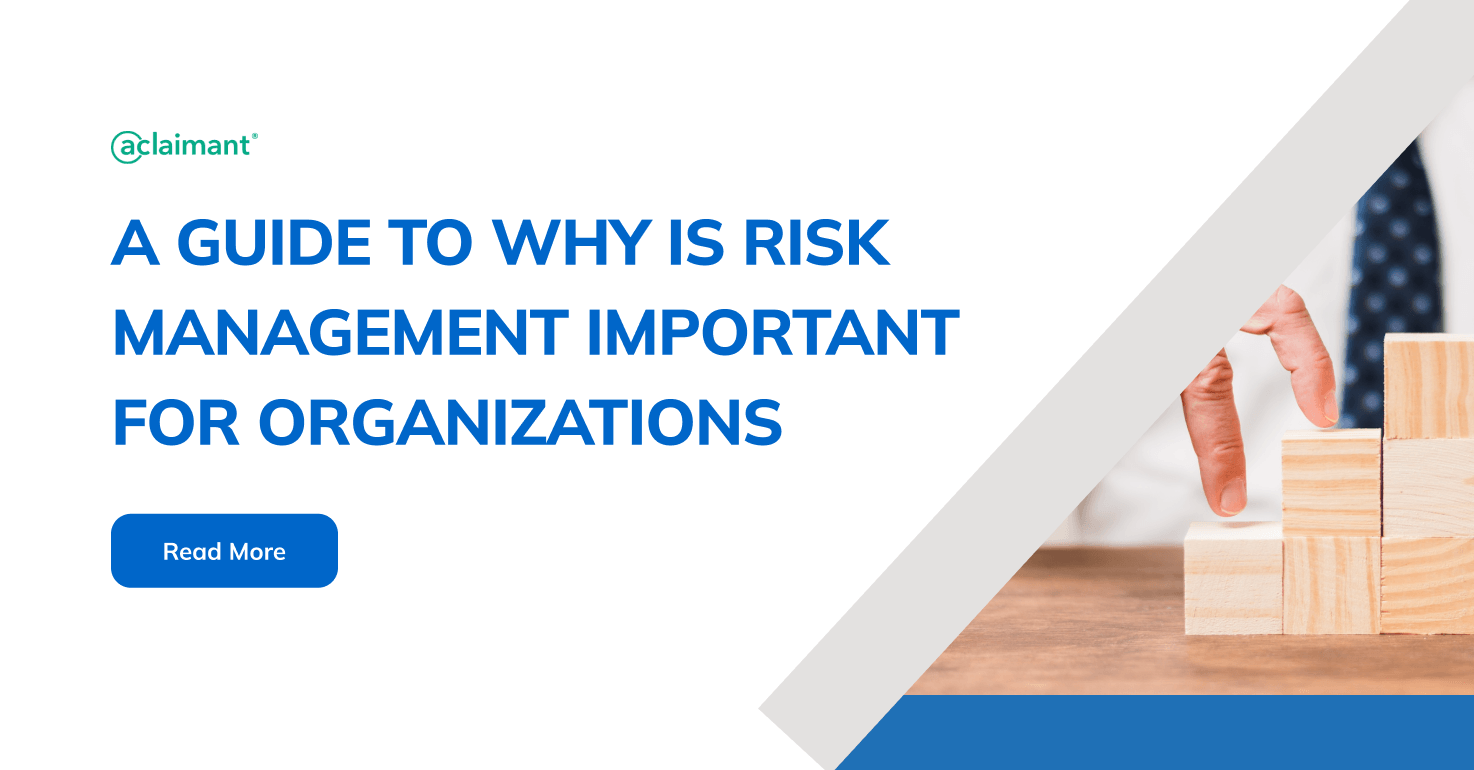The Essential Importance of Risk Management in Economic Decision Making
The Essential Importance of Risk Management in Economic Decision Making
Blog Article
The Crucial Importance of Risk Management in Getting Organizational Objectives
In the swiftly advancing organization landscape, the capacity to navigate unpredictability has become an essential. This is where Risk Management steps in, supplying a structured technique to determining, assessing, and mitigating possible obstacles to advance. It's even more than simply a protective measure - it's a calculated device, fostering strength and innovation. As we explore the critical duty of Risk Management in achieving business objectives, one can not help yet wonder: just how does this equate into real-world success?
Recognizing the Idea of Risk Management in Company

The Integral Role of Risk Management in Strategic Planning
Integrating Risk Management into calculated planning acts as a safeguard for companies, anchoring their long-lasting strategies with a strong foundation of readiness and durability. It operates as the company's radar, discovering potential hazards and vulnerabilities that might disrupt the path in the direction of achieving their stated purposes. Risk Management provides a structure for anticipating unpredictabilities and developing appropriate actions, ensuring the company's survival and success even despite difficulty. By including Risk Management into critical preparation, organizations can transform these unpredictabilities into opportunities for growth and technology. This strategic interweaving of Risk Management promotes adaptability, making companies extra durable and enabling them to navigate the ever-changing company landscape confidently. Consequently, Risk Management becomes an essential device in tactical preparation, important in safeguarding lasting success.

Techniques for Identifying, Assessing, and Prioritizing Threats
Browsing the complicated landscape of dangers needs the application of particular techniques for their assessment, identification, and prioritization. The procedure starts with Risk recognition, using tools such as SWOT analysis, which helps in identifying prospective hazards and chances. Next, Risk analysis is conducted to determine the possible impact and likelihood of each Risk. Devices such as Risk matrices and impact-probability charts are used for this. Lastly, risks are focused on based on their possible effect and likelihood, permitting companies to concentrate their resources on critical risks. This systematic strategy guarantees a thorough understanding of the Risk landscape, enabling companies to make educated choices and efficiently handle risks to accomplish their objectives - importance of risk management.
Securing Business Operations With Effective Risk Management
In the organization landscape stuffed with unpredictabilities, efficient Risk Management plays an essential duty in protecting business operations. It acts as a safety shield, reducing the unfavorable results of possible risks and guaranteeing the smooth his explanation performance of all processes. By find more information identifying and assessing potential threats, Risk Management enables companies to develop durable contingency strategies. This preventative approach help in maintaining functional stability, also when challenged with unforeseen situations. Basically, Risk Management is the lifeline that keeps the business procedures afloat in the middle of turbulent waters. It guarantees not only the survival yet the lasting growth of a company, making it an indispensable device in achieving organization purposes. For this reason, companies must purchase thorough Risk Management approaches to protect their operations.

Transforming Possible Risks to Opportunities: The Power of Risk Management
A positive approach to run the risk of Management entails recognizing, examining, and prioritizing threats to create strategies that transform them into potential benefits. Thus, by leveraging the power of Risk Management, companies can not just protect their procedures but additionally stimulate development and accomplish their objectives in an uncertain business atmosphere.
Instance Researches: Success Stories of Risk Management Driving Organization Objectives
Successful execution of Risk Management strategies has generated outstanding results in numerous services, underscoring the advantages of this method. International business like Microsoft and Google, for instance, have actually leveraged Risk Management to minimize threats and make use of opportunities, driving their service objectives ahead. Microsoft's positive Risk Management technique assisted it pivot swiftly during the 2020 pandemic, transitioning to remote job smoothly, thereby maintaining productivity. Google, by evaluating and reducing prospective dangers in its cloud-based solutions, has actually made sure nonstop service, consequently strengthening customer depend on. These instances highlight just how effective Risk Management can not only steer businesses webpage clear of potential pitfalls yet likewise lead them towards their calculated goals. Hence, Risk Management is important to the search of organizational goals.
Verdict
To conclude, Risk Management is essentially crucial in achieving organizational goals. It provides a systematic technique to recognizing, examining, and resolving prospective threats and possibilities. Even more than just mitigating risks, it likewise fosters development, durability, and lasting development. By incorporating Risk Management right into tactical planning, businesses can better navigate uncertainties, safeguard operations, and capitalise on chances, therefore straightening with long-lasting goals.
At its core, Risk Management is the process of recognizing, examining, and addressing possible hazards that might adversely affect an organization's procedures or goals. Next, Risk analysis is performed to determine the potential influence and probability of each Risk. Dangers are prioritized based on their possible effect and likelihood, permitting organizations to concentrate their resources on high-priority dangers. By recognizing and analyzing possible hazards, Risk Management allows organizations to develop robust contingency plans. A proactive strategy to run the risk of Management includes determining, examining, and focusing on threats to create strategies that transform them into possible benefits.
Report this page